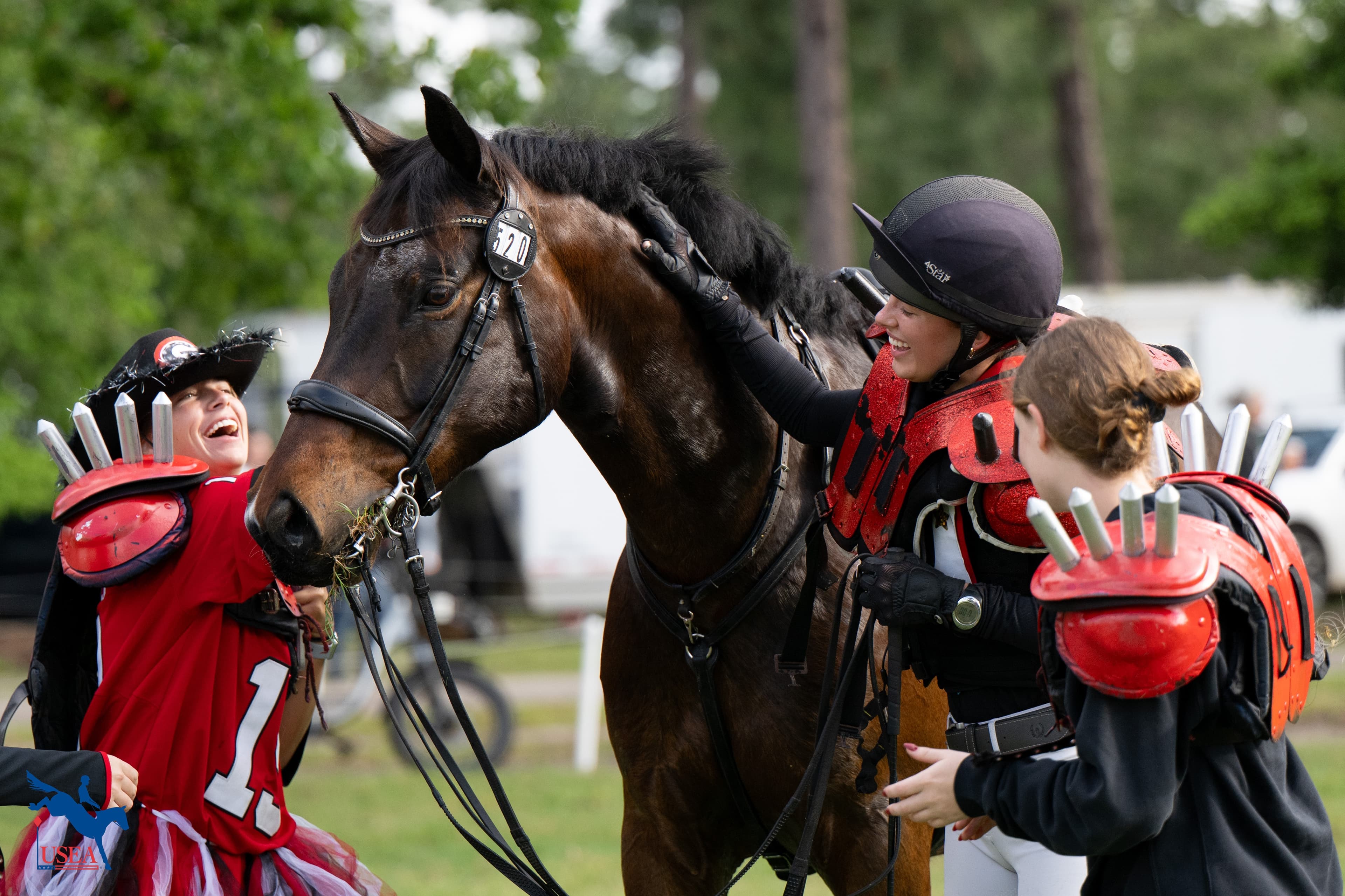USEA Events A-Z: St. Johns Horse Trials

The St. Johns Horse Trials takes place at the St. Johns Equestrian Center in Saint Johns, Arizona (Area X) in April of each year, offering Pre-Comp through Preliminary/Training levels in addition to a derby class meant as an introduction to the sport for new horses and riders.
In the summer of 1981, Andrew Popiel helped run the very first horse trials at the St. Johns Equestrian Center. “In Area X, he was the Johnny Appleseed of horse trials,” said Mary Hendricks, current organizer of the St. Johns Horse Trials. “He went to places he thought would be amenable to putting on horse trials, and [the equestrian center in] St. Johns, Arizona has about 150 stalls, a racetrack, and a place for a cross-country course.”
By 1985, the Apache County Horsemen’s Association had taken over management of the event and when they no longer had the resources to maintain the event, a group of local horsemen stepped up to the plate. “They were great people in St. Johns that kept it going,” Hendricks said.
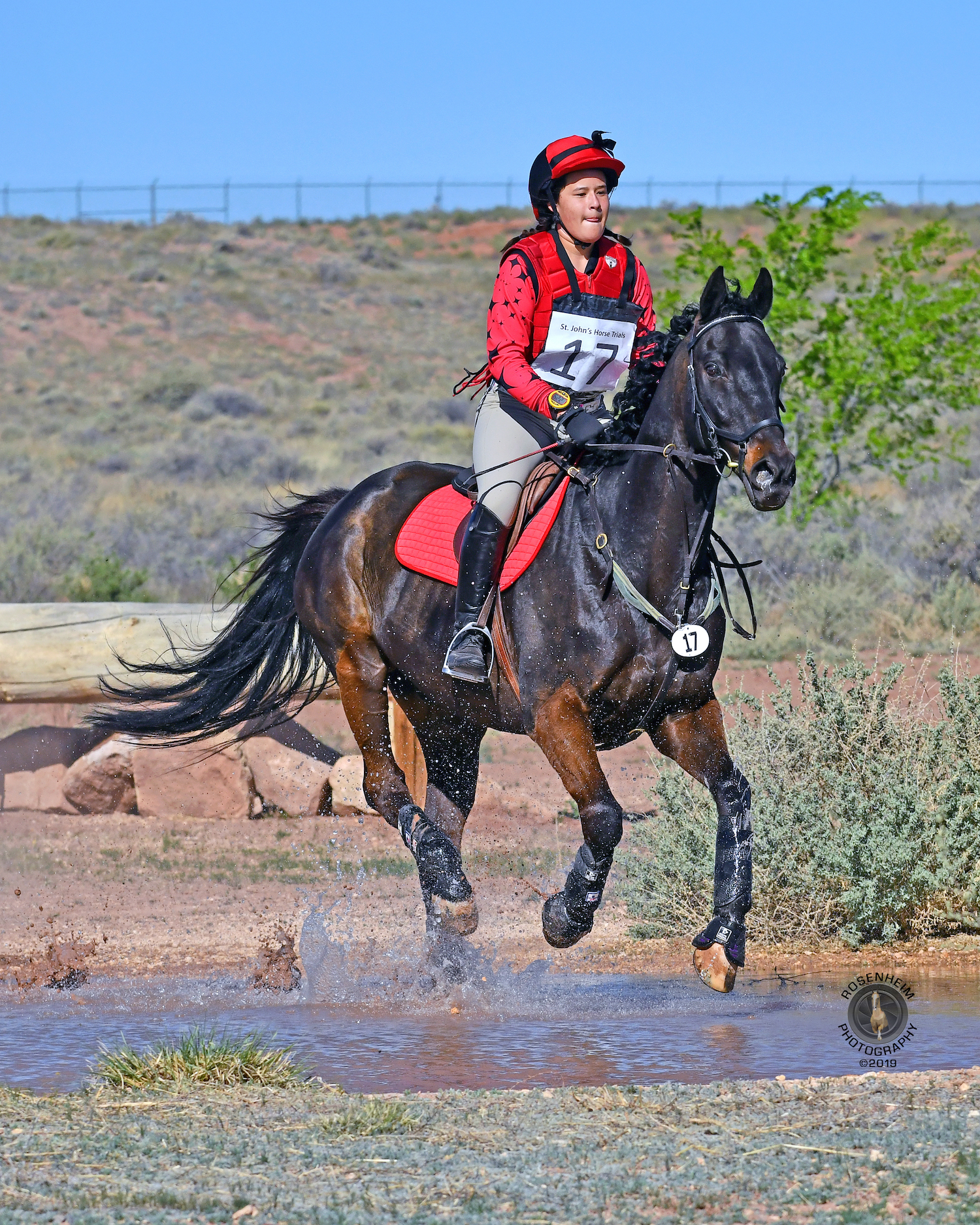
This group in turn passed the management of the event to the City of St. Johns, whose Recreation Manager at the time, Ross Carpenter, was put in charge. He managed the event for the next 10 years before he called Hendricks to see if she would be interested in taking over.
Hendricks was the Master of Foxhounds for the High Country Hounds in Flagstaff, Arizona, and helped with the organization of the High Country Horse Trials, a fundraiser event for the High Country Hounds. The High Country Hounds had an invitational hunt in St. Johns for a few years, and that was how Hendricks met Carpenter. “I talked to him and arranged to put up our horses and our hounds and host a hunt party in St. Johns,” Hendricks recalled. “I was working already with the folks in St. Johns and that’s how I came to mind to help with the horse trials.”
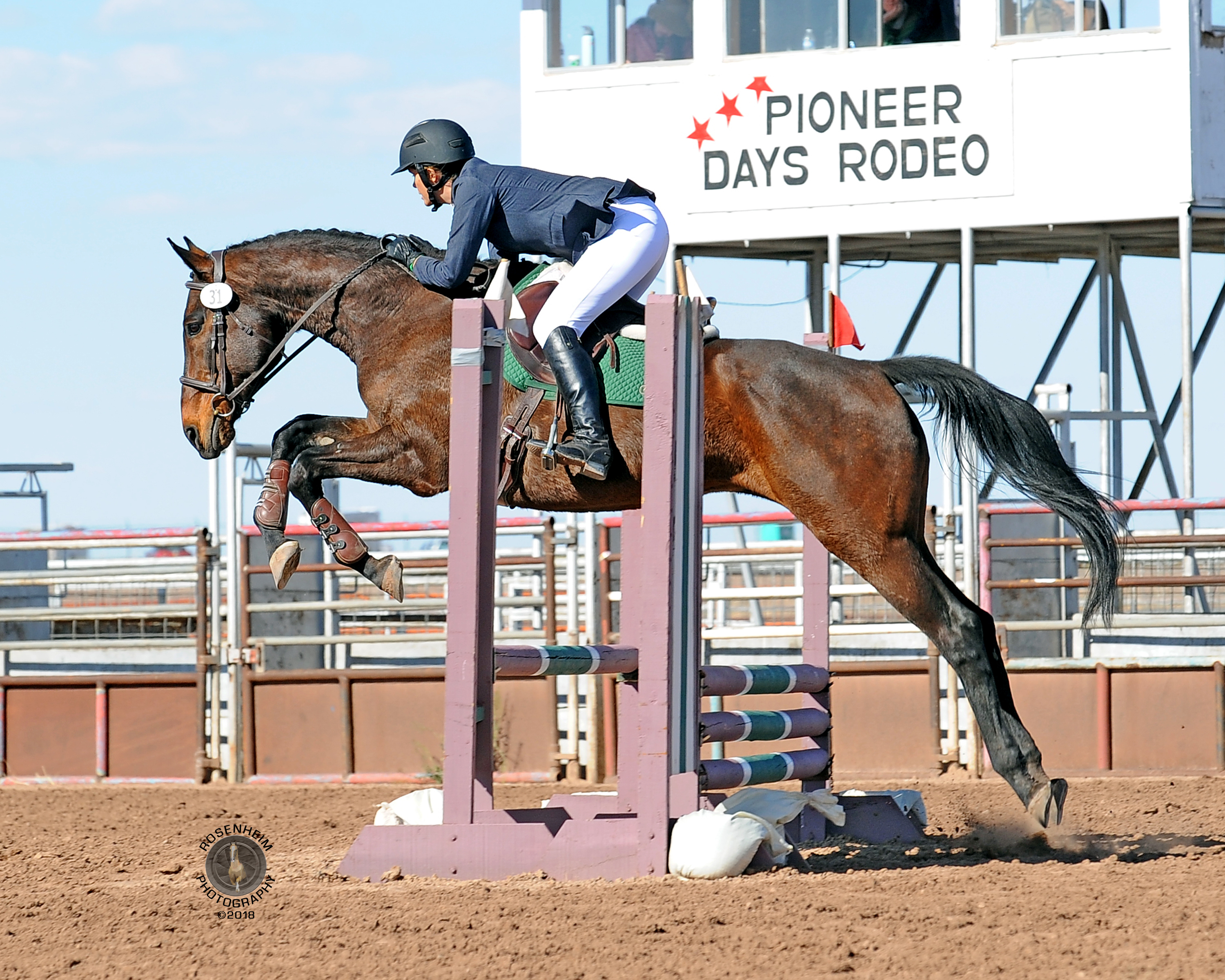
St. Johns is the county seat for Apache County, but still only boasts a population of a little over 3,500 people. “It’s a really amazing facility for a small town,” said Hendricks. “The facility has about 150 stalls, it’s no longer functioning but it had a racetrack, it has rodeo arenas, and it’s also the site for the Pony Club camp in June every year . . . it’s a nugget in the middle of Northeastern Arizona.”
The cross-country course at St. Johns, currently designed by Adrienne Doyal, features more traditional, natural-looking obstacles that fit in nicely with the rugged scenery. “It goes across the rolling countryside of sand and hills and shrubbery, it’s very lovely.”
“The town itself is very small, but friendly,” continued Hendricks. “It doesn’t have the usual amenities like big hotels so most people camp – we have a campground there with hookups for trailers and you can also dry camp . . . It’s a great place with a small-town feel with a friendly atmosphere.”
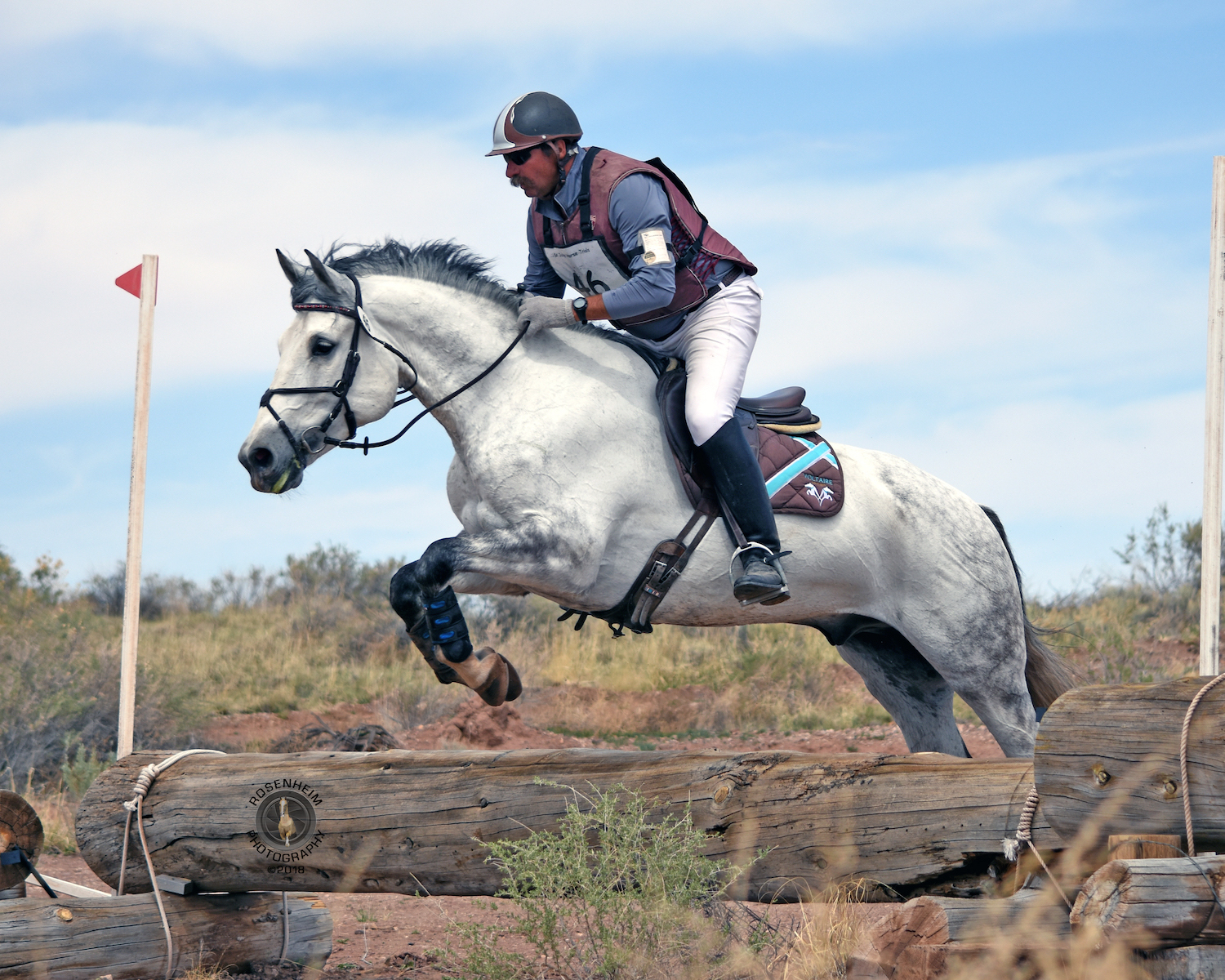
Hendricks made a point to emphasize how well she and the people of the town of St. Johns have been able to work together to make the event possible. “It’s a small community and they’ve just supported the horse trials all these years. It’s been a wonderful experience to work with the folks in the community.”
When it’s time for the horse trials, Hendricks makes the two-hour drive from her home in Flagstaff to come run the event in St. Johns. “I drive east and turn off to go south to St. Johns and as soon as I turn off, I lose cell service and I drive past the back entrance to the petrified forest and it just seems like I’m traveling back in time,” she said. “The countryside is so beautiful and it’s so peaceful and when I get to St. Johns it’s like a flower opening up. I see the facility and the changes and improvements we’ve made and I get to see my friends in the community. It’s a really welcoming little place in the world.”
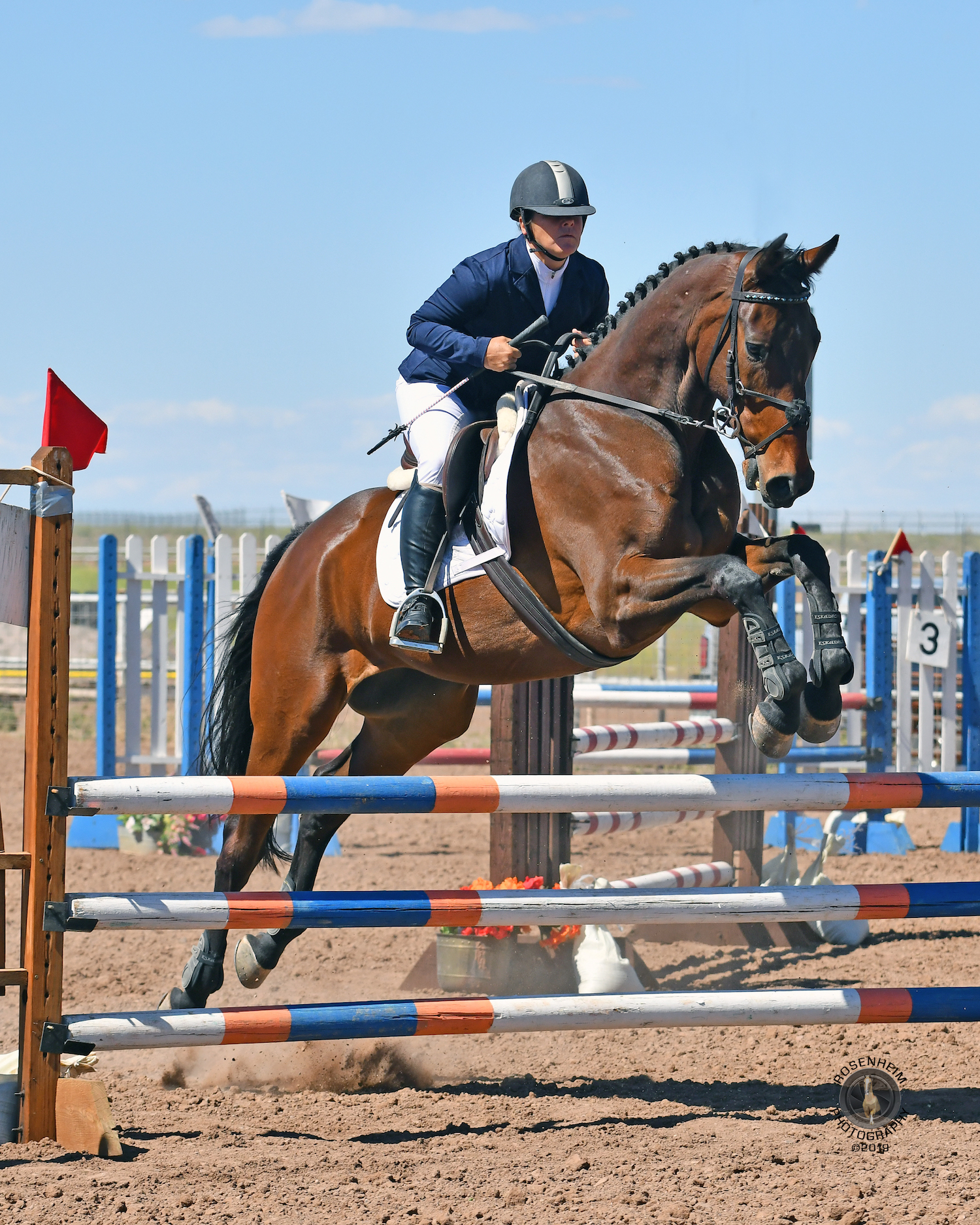
“People really enjoy it for what it is,” Hendricks observed. “It’s a great place for horses that are starting out or nervous because it has such a low-key atmosphere. We’ve tried to accommodate people or horses that are new to eventing so that they have a smooth and successful start to the process of moving up . . . We’re on the competitors’ side – we want to know what their experience is and how we can improve it.”
The USEA is profiling the history behind all USEA recognized events in the USEA Events A-Z series.


